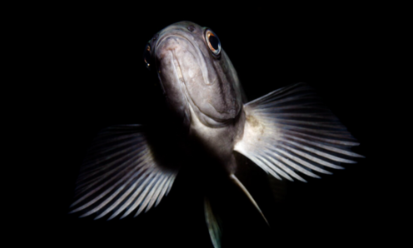Study reveals biodiversity engine for fishes: shifting water depth

Two EEB Researchers have just had a paper published in the journal Nature Communications with findings that suggest that as climate change warms the oceans at higher latitudes, it will impede the evolution of fish species. Sarah T. Friedman, former Yale G. Evelyn Hutchinson postdoctoral associate, and EEB faculty member Martha Munoz, analyzed existing data on the global species occurrence of 4,067 fish species that included information on species geographic range and speciation rate. In part, their analysis modeled how often fish lineages might be expected to transition across ocean depths. By laying out a distribution of anticipated shifts in depth, the researchers could compare the number of observed transitions in specific lineages. They found that species-rich, high-latitude lineages — eelpouts, rockfishes, flatfishes, icefishes, and snailfishes — transitioned up and down the water column more often than expected. Meanwhile, hyper-diverse tropical lineages, such as gobies and wrasses, changed depth less frequently than predicted.